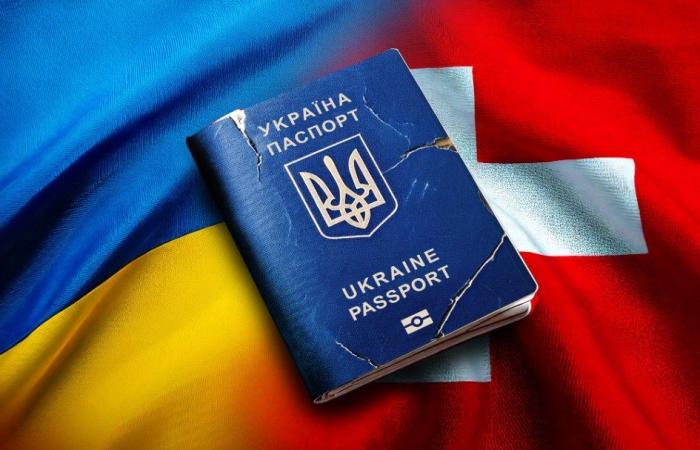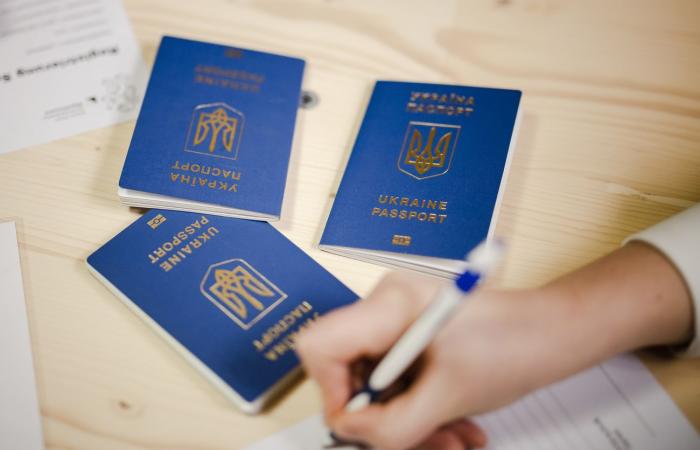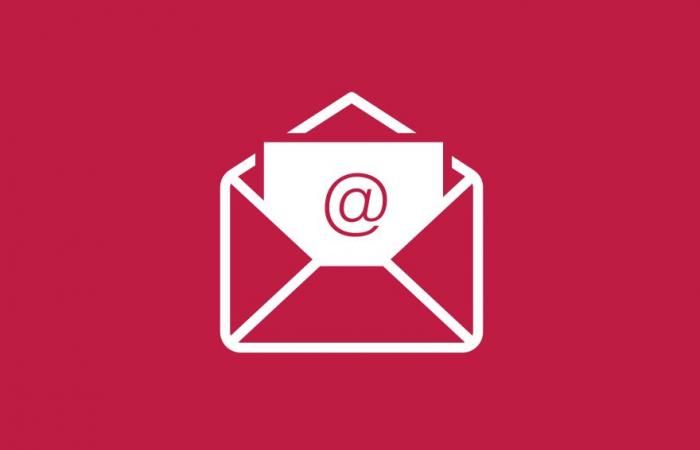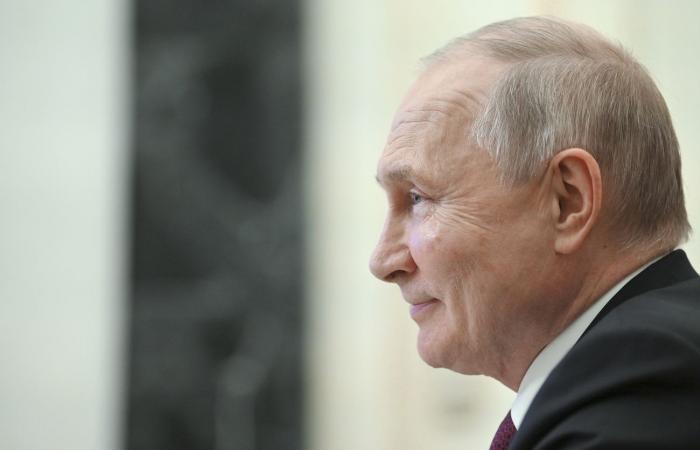Kai Reusser / SWI swissinfo.ch
A law enacted just six months ago expands recruitment for the front in Ukraine. How is this call to strengthen the ranks perceived among Ukrainians in Switzerland? Two testimonies evoke their tensions.
This content was published on
October 22, 2024 – 10:52
Balanced between the desire to serve their country and the desire to save their skin, their government considers them to be rebels. Should Ukrainians in exile join Ukraine to fight and defend their nation? This is the difficult question that Maksym*, 36 years old, and Dmytro*, 50 years old, have been asking themselves since the authorities in kyiv decided in May to put pressure on Ukrainians living abroad. Like thousands of their compatriots.
With its shortage of soldiers and an increase in cases of desertion, Ukraine must constantly replenish its army. And thus remind those who left the country at war of their obligations. This law applies not only to those in Switzerland who have been covered, since the start of the Russian invasion, by an “S” permit, which the Swiss authorities have issued to them, but this law also directly concerns all those who have fled Ukraine before the annexation of Crimea in 2014.
Plus
Plus
Do Ukrainian refugees have a secure future in Switzerland?
This content was published on
August 7. 2024
Switzerland is now rejecting asylum applications from Ukrainians at a higher rate than ever.
read more Do Ukrainian refugees have a secure future in Switzerland?
All equal before the law
Under the law, every Ukrainian aged 18 to 60 must now register with the military, pass a medical exam and update their residency status. It does not matter the length of the stay in Switzerland or, for some, of obtaining Swiss nationality. With this decree, Maksym and Dmytro felt the pressure mount. With the feeling also that everyone would be enlisted one day. Tensions arose coupled with unease and insecurity. This is what crosses the minds of the Ukrainians that swissinfo.ch was able to meet.
“Before the introduction of this decree, the medical examination one took in the army determined whether one was ‘fit, partially fit or unfit’ to serve. The ‘partially fit’ section has now been removed. This means that people who are ‘partially unfit’ must be re-examined,” explains Maksym.
Before the war, he traveled in Europe for a company based in kyiv. In 2022, two weeks before Russia invaded Ukraine, he was in Geneva for work. But due to the closure of airspace, he was unable to return home. “When it became clear that kyiv would not fall in three days,” he says, or in other words that this war was going to last, Maksym arranged for his wife and daughter to join him in Geneva.
“Leaving Kiev a fortnight earlier, I had left money with my wife, filled up with gas and packed our documents into one suitcase. I had a presentiment, he remembers. And when the plane took off from Boryspil airport in kyiv, I noticed on the runway the presence of a huge American military plane. I told myself that something was wrong.”
Escaped or exiled?
Ukrainians subject to this new wave of mobilization have in principle sixty days to bring their documents into compliance. From abroad, they also have the possibility of doing this via an application called “Reserve Plus”.
“If you do not comply with this marching order, you will be fined an initial fine of 17,000 hryvnias (350 Swiss francs). The authorities then begin to take an interest in your personal data. A notice is sent to your last registered address, whether you live abroad or in Ukraine. Then a second fine falls, this time of 25,000 hryvnias (520 francs). And so on, the fines follow one another and your criminal liability may finally be incurred. Responsible for enforcing this law, services may also want to seize your property,” describes Maksym.
For example, the owners of a building no longer have the right to sell it, transfer it or bequeath it, or carry out transactions. “My compatriots are much more afraid of the criminal charge than of the fines,” he summarizes. Outside Ukraine, two solutions are available to them: do nothing and wait or comply with the law and join the army if you plan to return home one day.
According to him, from Switzerland, it is already impossible to renew your Ukrainian passport without having to update your military file at the same time. We are told that three of his acquaintances have already been refused consular services. Indeed, by order of the Ukrainian Ministry of Foreign Affairs, every Ukrainian abroad aged 18 to 60 must be able to provide a paper or digital military registration document.
“Our government is currently doing everything in its power to make the lives of Ukrainians who have not yet registered for the army and who now live outside Ukraine uncomfortable,” he says. When his Ukrainian passport expires, he will only be able to travel to Switzerland with his S permit or a Swiss residence permit. The trend among his compatriots abroad is currently to obtain a Romanian passport. And become European citizens for 3000 euros and a three to six month wait.
But since Ukraine does not recognize dual nationality, the names on the databases will continue to be checked. And conscription notices will continue to be sent out. Interviewed before the introduction of this law by the British daily The GuardianUkrainian Foreign Minister Dmytro Kuleba declared in April that only a few Ukrainians abroad would come back to his opinion. However, he insisted on the symbolic significance of these returns. “The guys are very tired in the trenches,” adding that their peers in Europe were “going to restaurants.”
Report from RTS Téléjournal of May 10, 2024 on the lack of men in the Ukrainian army:
Bulletproof vests at their own expense
After three years of war, the patriotic fiber has faded a little. “People are waking up. Since I’ve been here, I’ve been raising money myself for friends to enable them to purchase basic equipment from military stores (magazines, bulletproof vests). Volunteers then deliver these items to them because there… they lack the essentials,” explains Maksym.
“One of my comrades who was a soldier in the Airborne Forces was recently transferred to another brigade. He has just been appointed sniper. He is at the front and on the front line. But he was not even given a proper rifle, like those used by the snipers especially.”
“He uses a weapon that he made with spare parts. But with a limited range, 100 meters compared to 800 or 900 meters for a professional rifle, he explains. That’s why, along with others, he plans to save up to buy one.”
He also notes that not all units are apparently entitled to the same equipment. But making this kind of criticism of one’s government and its Ministry of Defense is not really easy in times of war. Maksym, very frustrated, cannot however curb them all.
“I think the army has money in Ukraine. But the question is how much of it actually goes to the soldiers. Today, we do not expect to receive high-end equipment or ultra-modern weapons. But essential equipment should be provided,” he claims.
He also notes that soldiers themselves finance drones, electronic systems and vehicles directly via crowdfunding (crownfunding). Maksym therefore wonders where the money from the Ministry of Defense goes. “I think the whole system is corrupt from top to bottom. This is one of the reasons that encourages people to desert, and others to lose faith at the front. My friend keeps telling me: ‘Don’t think about coming here!’
Moral dilemma
Stay away from this war to protect your family and loved ones or go and defend your land. This is the dilemma that is gnawing at Ukrainians in exile.
For Dmytro, 50, his life should continue in Switzerland far from the noise. “My wife and I left Ukraine in 2009. Since then, I have worked in Switzerland where I regularly pay my taxes. Our son is about to get his Swiss passport and we are seriously considering applying for one too. I think we have already abandoned our Ukrainian nationality in our heads, even if we still have it. Our life is here. I don’t think we feel Ukrainian. But as long as kyiv has not exhausted its reserves of soldiers in Ukraine, in my opinion there is no point in pursuing the men who left before 2014, the year of the annexation of Crimea,” he explains.
“I still have my Ukrainian passport, which means I am not completely free from all this. So I remain anxious and rather uncomfortable. My helplessness is great, and I can’t talk to anyone about it,” admits Dmytro.
Forcing unmotivated men to go into combat is, he says, “a ticking time bomb.” He thinks it is impossible to make good soldiers out of them. “The situation will get even worse,” he also fears. Ukraine is holding on because it is defended by motivated people. This is what has held up until now.”
Report from RTS Téléjournal on February 23, 2024 on these Ukrainians who refuse to go to the front:
Away since October 7, 2023
In saying this, Dmytro also has another contemporary conflict in mind. The one that started on October 7, 2023, the day Hamas attacked Israeli villages from the Gaza Strip. The next day, he remembers seeing on television young Jews from around the world rushing through airports to return to Israel, leaving their studies and jobs, and their comfortable lives in the West, to volunteer. “Quite the opposite in Ukraine,” he describes.
“That’s the crux of the problem,” he adds immediately. The Ukrainian population has nothing to defend in terms of values since the authorities have failed over time and governments to build a country that we would rush to protect today. Corruption and poverty are an integral part of the decor. Ukraine is governed by a system dominated by oligarchs,” he concludes.
*The names of those interviewed have been changed, but are known to the editorial staff. The opinions expressed are their own and solely their own.
Text reread and verified by Veronica De Vore, translated from English by Alain Meyer/op
Plus

Plus
Want to know more? Subscribe to our newsletter
Subscribe to our newsletter for the Fifth Switzerland and receive our best articles in your inbox every day.
read more Want to know more? Subscribe to our newsletter
Learn more
Following
Previous
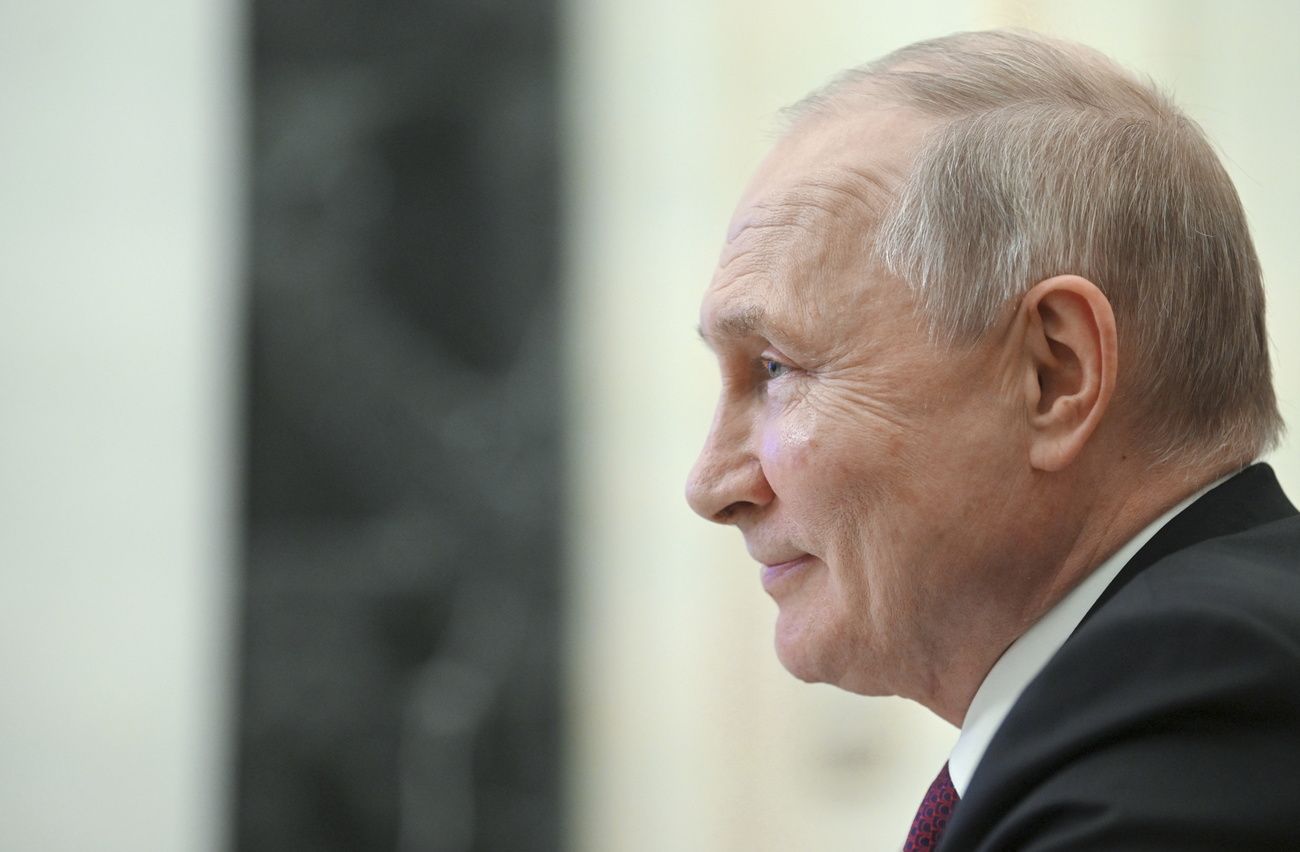
Plus
Russian propaganda on Switzerland under the microscope
This content was published on
30 sept. 2024
Russian authorities and official media claim that Swiss sanctions against Russia violate Swiss neutrality. Our analysis.
read more Russian propaganda on Switzerland under the microscope

